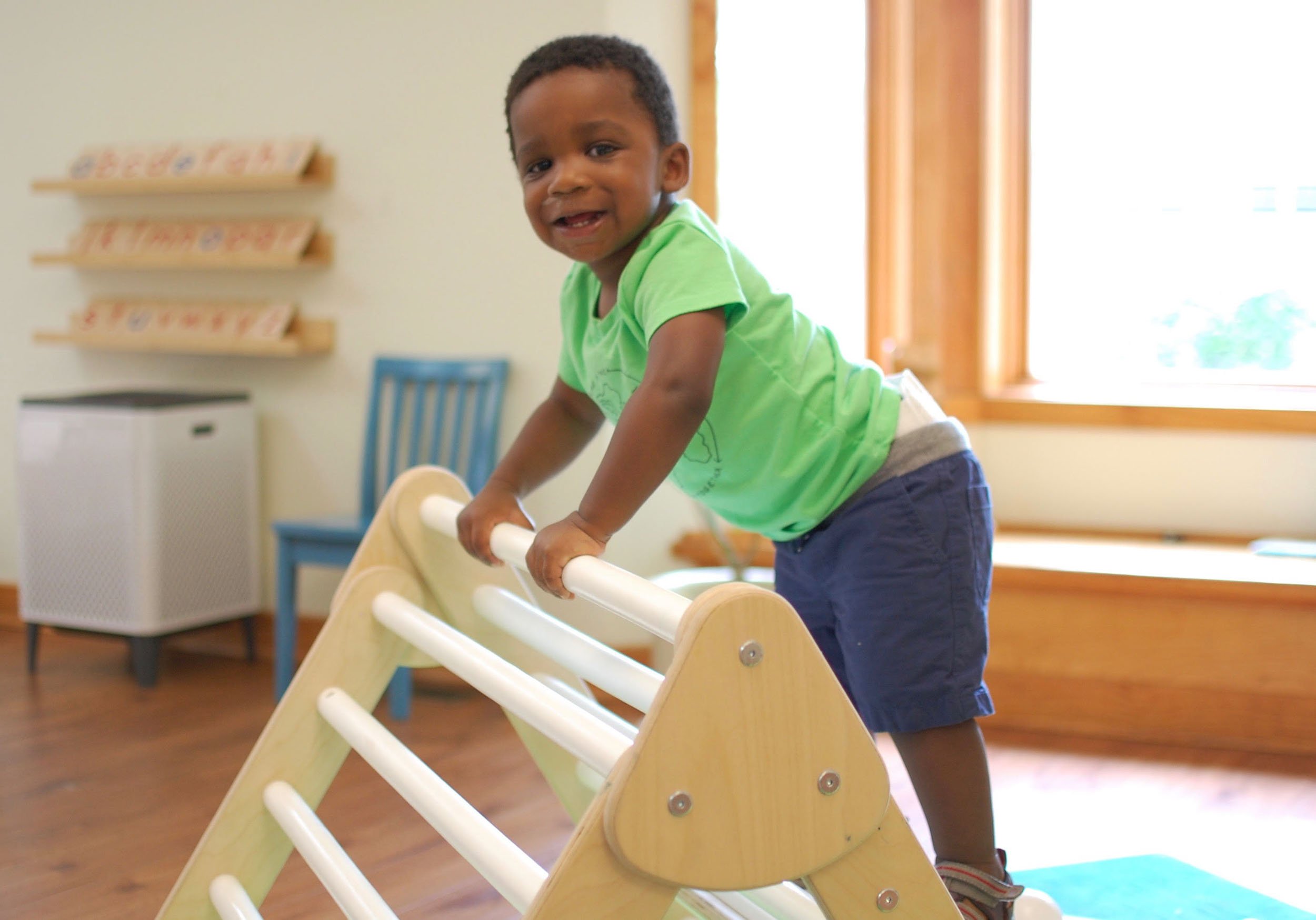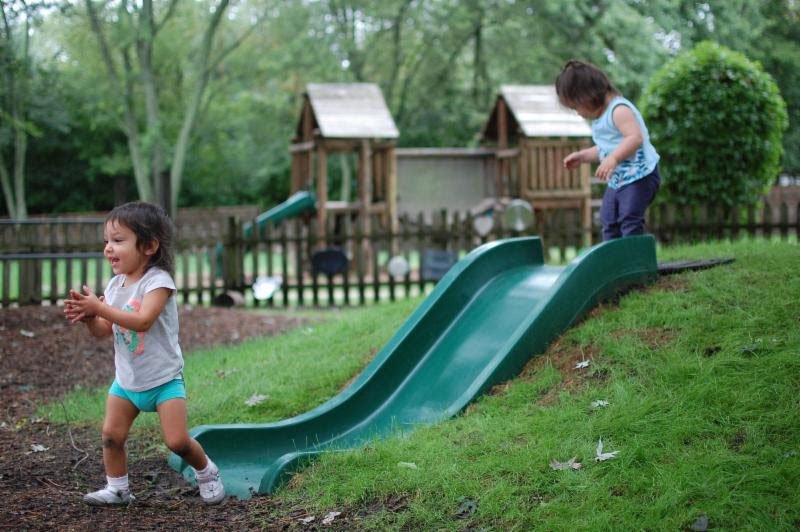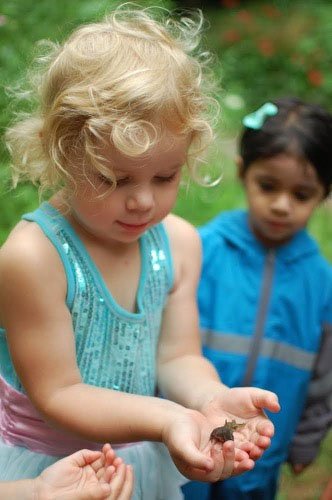
Our Programs
Montessori Basics
⟡
The learning curriculum includes planned activity in everyday living skills, sensorimotor development, language arts, mathematical thinking, and cultural subjects. Children enjoy interacting with nature and engaging in music, movement, and art as well.
⟡
Seton’s Montessori classroom environments are based on a dynamic blend of freedom and structure. Children are encouraged to choose their activities from among a wide variety of prepared materials in a carefully planned and structured environment. The emphasis is on cultivating awareness, independence, and responsibility in a multi-age community.
⟡
Seton’s educators see themselves as guides and facilitators of children’s learning. Teachers prepare the learning environment, assist children in making choices and introducing them to materials, and observe and record progress in order to better follow the interests and needs of each individual child.
Learning Environments
At the heart of Maria Montessori’s philosophy was the idea that we should prepare exciting, interactive, and comforting environments for our children. At MCH, we accept this wisdom and seek to build on it by providing dynamic learning to serve today’s child. Additionally, our expansive outdoor space provides for new environments to be explored. In sum, MCH strives to create environments that serve the child’s natural interest and learning potential.
FAQs
-
The Montessori approach is a system of education that is both a philosophy of child growth and a rationale for guiding such growth. It is based on the child’s developmental needs, exposure to materials, and experiences through which to develop intelligence as well as physical and psychological abilities. Children need adults to expose them to the possibilities of life, but children themselves must direct their response to those possibilities. The premises of Montessori education are:
Children are to be respected as different from adults and as individuals who differ from each other.
Children possess unusual sensitivity and mental abilities for absorbing and learning from their environment that are unlike those of the adult both in quality and capacity.
The most important years of growth are the first six years of life when unconscious learning is gradually brought to the conscious level.
Children have a deep love and need for purposeful work. They work, however, not as an adult for profit and completion of a job, but for the sake of the activity itself. It is the activity which accomplishes the most important goal of the child: the development of the self, inclusive of mental, physical, and psychological powers.
-
The Montessori approach has been used successfully with children up to eighteen years of age from all socioeconomic levels, representing those in typical classes as well as those who are academically gifted, have learning differences and/or are physically impaired. Because of its individual approach, Montessori education is uniquely suited to educating children of differing needs, temperaments and abilities.
-
Children are free to move about the classroom, to talk to other children, to work with any equipment or material whose purpose they understand, or to ask the teacher to introduce a new material. The teacher observes the child, noting needs and interests. The educator then uses these observations to facilitate learning by guiding the children toward those activities that will best serve their development. The child is not free to disturb other children at work or to misuse the equipment that is so important to their development. We call this attitude “freedom within limits”.
-
The goal of Montessori education is multi-faceted: it encourages self-discipline, self-knowledge and independence; it nurtures a curiosity that results in an enthusiasm for learning; and it provides an organized and developmentally appropriate approach to problem solving and academic skill development.
-
Most children adjust readily to new classroom situations. In all likelihood this is because they have developed self-discipline and independence in the Montessori environment, as well as a foundational ability to approach learning in a variety of ways.
-
Curriculum in a multi-age setting is not static; older students can delve as far into a subject as they are able to, while younger students explore subjects at their own level. Older students also “learn what they know” while gaining self-esteem in the role of mentor to the younger students and naturally develop leadership skills as they assist children of all ages.
-
No. Montessori is a philosophy and method of education, not a franchise. Each school operates independently. Seton Montessori School is unique in its relationship with the Seton Montessori Institute Teacher Education Program as a lab school, in the way it interprets this philosophy for the community it serves, and in its leadership, vision, staff credentials and stability. Seton Montessori is an accredited school of the American Montessori Society.
-
No. However, there is a spiritual component to the Montessori philosophy which recognizes and respects the whole child, including an inner self, where issues of character and civic virtues reside and require development.
AMS Learner Outcomes
Lorem ipsum dolor sit amet, consectetur adipiscing elit, sed do eiusmod tempor incididunt ut labore et dolore magna aliqua. Ut enim ad minim veniam, quis nostrud exercitation ullamco laboris nisi ut aliquip ex ea commodo consequat. Duis aute irure dolor in reprehenderit in voluptate velit esse cillum dolore eu fugiat nulla pariatur. Excepteur sint occaecat cupidatat non proident, sunt in culpa qui officia deserunt mollit anim id est laborum.



